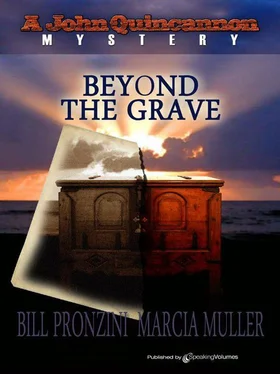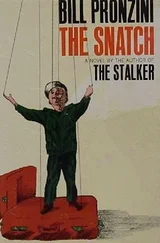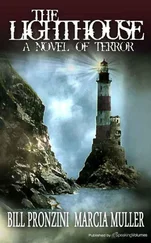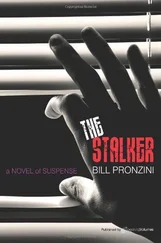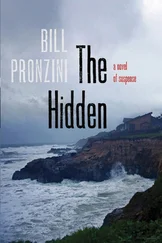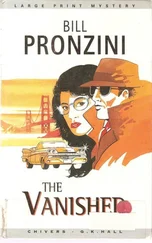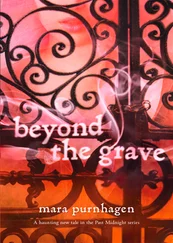Bill Pronzini - Beyond the Grave
Здесь есть возможность читать онлайн «Bill Pronzini - Beyond the Grave» весь текст электронной книги совершенно бесплатно (целиком полную версию без сокращений). В некоторых случаях можно слушать аудио, скачать через торрент в формате fb2 и присутствует краткое содержание. Год выпуска: 2011, ISBN: 2011, Издательство: Speaking volumes, Жанр: Исторический детектив, на английском языке. Описание произведения, (предисловие) а так же отзывы посетителей доступны на портале библиотеки ЛибКат.
- Название:Beyond the Grave
- Автор:
- Издательство:Speaking volumes
- Жанр:
- Год:2011
- ISBN:9781612321202
- Рейтинг книги:4 / 5. Голосов: 1
-
Избранное:Добавить в избранное
- Отзывы:
-
Ваша оценка:
- 80
- 1
- 2
- 3
- 4
- 5
Beyond the Grave: краткое содержание, описание и аннотация
Предлагаем к чтению аннотацию, описание, краткое содержание или предисловие (зависит от того, что написал сам автор книги «Beyond the Grave»). Если вы не нашли необходимую информацию о книге — напишите в комментариях, мы постараемся отыскать её.
Beyond the Grave — читать онлайн бесплатно полную книгу (весь текст) целиком
Ниже представлен текст книги, разбитый по страницам. Система сохранения места последней прочитанной страницы, позволяет с удобством читать онлайн бесплатно книгу «Beyond the Grave», без необходимости каждый раз заново искать на чём Вы остановились. Поставьте закладку, и сможете в любой момент перейти на страницу, на которой закончили чтение.
Интервал:
Закладка:
Fortunately the rancher made no remarks. He said only “Now we will talk” and presented his back for Quincannon to follow out of the kitchen, along the arcade, and up an outside staircase to the house's upper level.
From the gallery Quincannon could see beyond the courtyard walls to where a series of barns, bunkhouses, stables, corrals, and cattle pens stretched away along the flattish crown of the hill and down its gently sloping backside. Rancho Rinconada de los Robles may have been a shadow of what it was in the days of los ranchos grandes , but it was still a large and impressive spread. At least a dozen men were visible in the vicinity of the corrals and stock pens. From the size and number of the buildings, Quincannon estimated the total work force at thirty or more.
They entered the house through a thick oaken door. A large, cheerful parlor opened to the left, windowed on two sides, with a log fire blazing on its hearth. Two people occupied it-a slender, dark woman in her late twenties, dressed in an old-fashioned, lace-trimmed black dress and a black mantilla, and a little girl perhaps two years of age. Quincannon stopped to look in at them. Velasquez, who had started toward a room on the opposite side, reversed himself with a look of annoyance.
Quincannon said, “Aren't you going to introduce me?”
The woman heard and looked up, which left Velasquez with a choice between further rudeness and at least a show of good manners. He chose good manners, evidently for the woman's sake. She was his wife, Dona Olivia, he said; and the child was Sofia, his daughter. He spoke their names in a protective way and with more gentleness than Quincannon had believed he possessed. His eyes seemed to say, almost challengingly, “Now do you understand why I have posted armed guards at the gates?”
Barnaby O'Hare had said that Mrs. Velasquez was a beautiful woman. Quincannon could understand why-she presented a striking physical presence-but he did not agree with the assessment. There was a haughtiness about her, an air of aristocratic superiority, that he found unappetizing; and her eyes were cool, distant, with no hint of the fabled Latin passion. He preferred women who mixed warmth with their self-possession-women like Sabina.
Dona Olivia was polite enough, but he sensed that she was no more fond of Americanos than her husband. They made an ideal couple, he thought. He wondered if Velasquez had confided in her about his hiring of a detective and decided that the answer was yes; she seemed to know Quincannon's name. She was the type of woman, he judged, who would always insist on knowing her husband's business, and the business of everyone with whom either of them came in close contact.
“Will you be dining with us this evening, Senor Quincannon?” she asked.
“It would please me to do so,” he answered before Velasquez could speak. And added perversely, “Your husband has invited me to be your guest for a few days.”
“You are welcome, of course.” She shifted her cool, black-eyed gaze to her husband. “When you and Senor Quincannon have finished your business, please come to me in the parlor. There is a matter we must discuss.”
Quincannon thought: A matter named John Quincannon, no doubt. He felt like smiling at Velasquez and gave in to the impulse. The look he received in return was withering.
Velasquez said to his wife, “As soon as we are finished, Dona Olivia,” allowed Quincannon and the woman to exchange a polite parting, and then ushered him into a smallish, oak-paneled study. When the door was shut, he let his anger show; his eyes glinted with sparks of light as he said, “You presume a great deal, senor. A great deal.”
“Do I? Perhaps you'd care to terminate my employment, then?” Quincannon had had about all he could tolerate of Velasquez's superciliousness and bigotry. “Pay me what you owe for services already rendered, and I will be more than happy to vacate your house and your land.”
Velasquez glared at him for a moment. Then, abruptly, he turned and crossed the room to a window set beside a broad rolltop desk. He stood silent and rigid, staring out at the gray afternoon.
Quincannon let the silence build; he wanted Velasquez to be the first to speak. He packed his pipe and lighted it. The study, like the parlor occupied by Velasquez's wife and daughter, was furnished in the dark, ornate Spanish style of a bygone age. The old-fashioned way in which he and his family were dressed, the house and its atmosphere of faded elegance, had a pathetic quality. The Velasquezes lived in the past, sought to recapture the lost days of the Spanish aristocracy; they succeeded only in making an enemy of the present.
At least two minutes passed before Velasquez turned from the window. The anger was gone; his face was set in grim, tired lines. In that moment he seemed somehow old, not so much an anachronism as a man whose time has come and gone-a man with nothing left to make of his life. And no desires save one: the recovery of his father's lost treasure.
He said, “Why are you here? What has happened in Santa Barbara?”
“Luis Cordova is dead. Murdered two nights ago. Whoever killed him took papers that may reveal the original hiding place of the artifacts.”
Velasquez showed no reaction. He stood a moment longer, then turned and shuffled to a chair before the room's cold fireplace, sat down in it, and looked at his hands as if he were a Gypsy seeking his fortune in their seams and creases. At length he said, “How do you know all this?”
“I found the body.”
“And the police-did you inform them?”
“No. They'll find out soon enough.”
“What did you do?”
“Left Santa Barbara immediately to come here. I suspect the murderer did the same.”
“You believe the artifacts are still hidden? That Cordova did not steal them?”
“There is no evidence that he stole them. Or that anyone else did.”
“But the statue of the Virgin Mary-how did that come into his hands?”
Quincannon explained about Tomas Cordova and his legacy. Velasquez's anger returned as he listened; a small, bright hatred seemed to flicker like firelight over his features. “A filthy traitor, this Tomas Cordova,” he said broodingly. “If Don Esteban had discovered his treachery, he would have died in agony.”
“Perhaps that's how he did die, and only one day later.”
Velasquez made a guttural noise and looked again at his hands.
Quincannon said, “There was something Luis Cordova's murderer overlooked, something I found in the corpse's hand.”
Velasquez's head jerked up. “What did you find?”
“A scrap of paper, torn from a document I believe was written by Tomas Cordova and given to his wife before she and Luis fled the rancho. A document describing the location of the artifacts.”
“Ah. You found no other part of this document?”
“No. Just the scrap.”
“It has words on it, this scrap?”
“Yes.”
Quincannon took the torn corner from his pocket, moved over to hand it to his employer. Velasquez studied it eagerly, his brow furrowed in concentration.
“ Mas alia del sepulcro ,” he said. “In English-”
“‘Beyond the grave.’”
“ Si . ‘Beyond the grave.’”
“Does the phrase mean anything to you?”
“No. Except that there is a graveyard behind the church of San Anselmo de las Lomas …”
“I know, I stopped there briefly on my way here. Who was Maria Alcazar?”
“My father's first wife. She died in childbirth.”
“She appears to be the only ‘Maria’ buried there. Which would make her grave the one referred to in Tomas Cordova's document.”
“Yes,” Velasquez said, “but that fact by itself tells me nothing. What are the other directions? Without the document-”
Читать дальшеИнтервал:
Закладка:
Похожие книги на «Beyond the Grave»
Представляем Вашему вниманию похожие книги на «Beyond the Grave» списком для выбора. Мы отобрали схожую по названию и смыслу литературу в надежде предоставить читателям больше вариантов отыскать новые, интересные, ещё непрочитанные произведения.
Обсуждение, отзывы о книге «Beyond the Grave» и просто собственные мнения читателей. Оставьте ваши комментарии, напишите, что Вы думаете о произведении, его смысле или главных героях. Укажите что конкретно понравилось, а что нет, и почему Вы так считаете.
